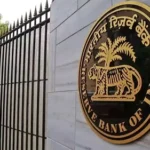In response to recent public concerns, the Indian government has clarified that individuals will not face penalties from the Reserve Bank of India (RBI) for maintaining multiple bank accounts. This statement addresses circulating rumors suggesting potential punitive measures for account holders with several banking relationships.
Official Statement
The Ministry of Finance has officially stated that there are no restrictions or penalties imposed by the RBI on individuals holding multiple bank accounts. This clarification aims to dispel misinformation and reassure the public about their banking practices.

Understanding Multiple Bank Accounts
Many individuals maintain accounts with different banks for various reasons, including:
- Diversification of Services: Different banks offer unique services, benefits, and interest rates, prompting customers to engage with multiple institutions to optimize their financial management.
- Financial Planning: Separating accounts for specific purposes, such as savings, investments, or business transactions, allows for organized financial planning and budgeting.
- Convenience: Having accounts in multiple banks can provide greater accessibility and convenience, especially when traveling or managing finances across different regions.
Regulatory Perspective
The RBI, as the central banking authority, does not impose limitations on the number of bank accounts an individual can hold. However, it mandates strict adherence to Know Your Customer (KYC) norms and Anti-Money Laundering (AML) regulations to ensure the integrity of the banking system.
KYC and AML Compliance
While holding multiple accounts is permissible, individuals must comply with KYC and AML guidelines, which include:
- Accurate Information: Providing truthful and up-to-date personal information to each banking institution.
- Transaction Transparency: Ensuring that all transactions are legitimate and can be substantiated with appropriate documentation.
- Regular Updates: Promptly updating any changes in personal information, such as address or contact details, across all bank accounts.
Potential Risks of Multiple Accounts
While there are no penalties for maintaining multiple bank accounts, individuals should be mindful of potential challenges:
- Account Inactivity: Dormant accounts may attract maintenance fees or become susceptible to fraudulent activities.
- Financial Management: Overseeing multiple accounts requires diligent management to avoid missed payments, overdrafts, or overlooked fees.
- Credit Score Impact: Mismanagement of any account can adversely affect an individual’s credit score, impacting future borrowing capabilities.
Best Practices for Account Holders
To effectively manage multiple bank accounts, consider the following strategies:
- Consolidation: Evaluate the necessity of each account and consider consolidating funds into fewer accounts to simplify management.
- Regular Monitoring: Frequently review account statements to monitor for unauthorized transactions or errors.
- Automated Alerts: Set up notifications for account activities, such as low balances or large transactions, to maintain oversight.
- Maintain Compliance: Ensure all accounts comply with KYC and AML regulations to prevent any regulatory issues.
Conclusion
The government’s clarification provides reassurance to individuals utilizing multiple bank accounts for their financial needs. By adhering to regulatory guidelines and implementing effective account management practices, individuals can continue to benefit from the flexibility and services offered by various banking institutions without concern of penalties.


















